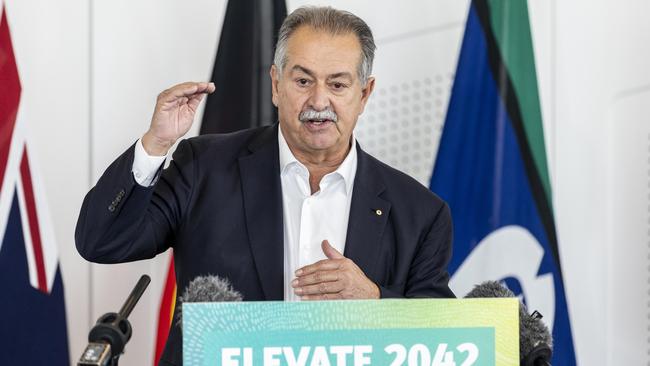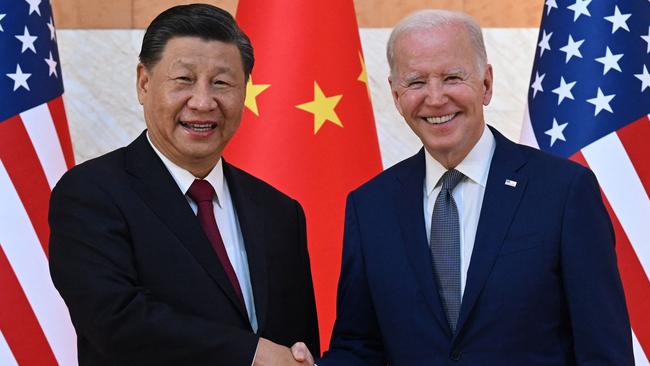US-China trade decoupling can’t be reversed, says former Dow Chemical boss Andrew Liveris
The US will continue to distance its economy from China irrespective of the impending meeting between presidents Joe Biden and Xi Jinping, a UBS conference in Sydney has heard.

The US will continue to “decouple” its economy from China, despite this week’s meeting between Chinese President Xi Jinping and US President Joe Biden, former Dow Chemical Company chief Andrew Liveris says.
“Decoupling is irreversible,” Mr Liveris told the UBS Australasia conference in Sydney on Tuesday.
He said there were hopes the meeting of the two leaders at the APEC summit in San Francisco on Wednesday could provide the opportunity for both countries to “go to a new level of co-operation”.
But he was sceptical about whether US-China trade ties would ever return to the highs of previous years.
“I don’t think there is much hope that the trade agenda will be rekindled,” he said.
He said the US had been recognising well before the election of Donald Trump in 2016 that it needed to reduce risks in its supply chain, including its dependence on goods made in China. “What has been going on in the US is an onshoring – a supply chain security risk abatement that puts costs back into the US by not sourcing from China,” he said.
“The consequences of that are irreversible. China itself is also building its own supply chains independent of the US market.”
Mr Liveris, who is now president of the 2032 Brisbane Olympics Organising Committee as well as holding many corporate directorships, said business leaders needed to be prepared to operate in a world of heightened global tensions.
He said boards and management must prepare for the implications of “hot wars” as well as “cold wars” with a strong focus on risk abatement.
“Risk is approaching code red,” he said, speaking by video from the US.

“We have risks at the political level which boards and management teams need to address.”
There needed to be closer ties between business and government to discuss key policy issues for the country, including ways to create more jobs and the energy transition.
He said President Biden had passed legislation which would help “de-risk” doing business in the US, including encouraging more manufacturing back onshore and providing support for the green energy transition through the Inflation Reduction Act.
Chris Miller, associate professor of international history at The Fletcher School at Tufts University in Boston, said he expected the US to continue cutting China’s access to high-level computer chips.
“The US has been cutting off access to China of the most advanced level of chips to the point where it is now illegal to transfer the most advanced chips to China,” he said. “The US is afraid that if China gains access to these chips (and uses them to train more artificial intelligence programs) they will inevitably be used for autonomous drones and intelligence collection and sifting through intelligence data.”
He did not expect the meeting between Presidents Xi and Biden to lead to any long-term resolution of the chip access issue.
“We should expect the chips’ war to continue,” he said.
“It speaks to the central issue of the competition between the US and China over technology, competition over artificial intelligence and the production and control of computing power.”
Chinese companies have been systematically “weaning themselves off their dependence on Western companies” in recent years under the leadership of President Xi.
This had seen the country evolve from being an importer of cars to the world’s largest exporter of vehicles.
Mr Miller said there had been “immense government support” in China for the investment needed to help the country become self-sufficient in chips.
Despite this, China was still five years behind global manufacturers in making high-end chips, particularly those vital for powering AI.
He said President Biden’s CHIPS Act was aimed at encouraging more manufacturing in America by providing incentives for investment.
This had already seen an increase in manufacturing in the US but there was a question about whether it would continue to be economically viable once subsidies came to an end, Mr Miller said.
Mr Miller said the recent shortage of chips showed how vulnerable industries were.




To join the conversation, please log in. Don't have an account? Register
Join the conversation, you are commenting as Logout